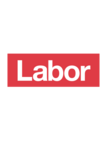
The Australian Democrats is a centrist political party in Australia. Founded in 1977 from a merger of the Australia Party and the New Liberal Movement, both of which were descended from Liberal Party dissenting splinter groups, it was Australia's largest minor party from its formation in 1977 through to 2004 and frequently held the balance of power in the Senate during that time.

The Country Liberal Party of the Northern Territory (CLP), commonly known as the Country Liberals, is a centre-right political party in Australia's Northern Territory. In local politics, it operates in a two-party system with the Australian Labor Party (ALP). It also contests federal elections as an affiliate of the Liberal Party of Australia and National Party of Australia, the two partners in the federal coalition.
Electoral systems of the Australian states and territories are broadly similar to the electoral system used in federal elections in Australia.
The parliaments of the Australian states and territories are legislative bodies within the federal framework of the Commonwealth of Australia.
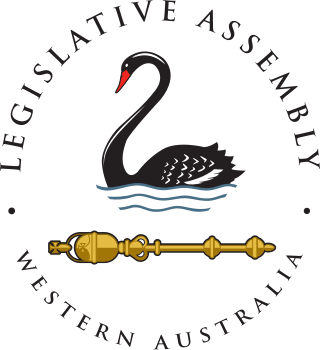
The Western Australian Legislative Assembly, or lower house, is one of the two chambers of the Parliament of Western Australia, an Australian state. The Parliament sits in Parliament House in the Western Australian capital, Perth.

The Legislative Council, or upper house, is one of the two chambers of the Parliament of South Australia. Its central purpose is to act as a house of review for legislation passed through the lower house, the House of Assembly. It sits in Parliament House in the state capital, Adelaide.
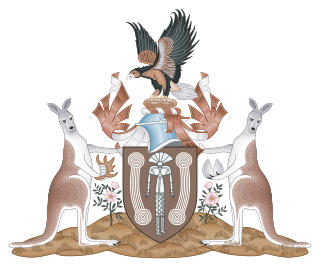
The Legislative Assembly of the Northern Territory is the unicameral legislature of the Northern Territory of Australia. The Legislative Assembly has 25 members, each elected in single-member electorates for four-year terms. The voting method for the Assembly is the full-preferential voting system, having previously been optional preferential voting. Elections are on the fourth Saturday in August of the fourth year after the previous election, but can be earlier in the event of a no confidence vote in the government. The most recent election for the Legislative Assembly was the 2020 election held on 22 August. The next election is scheduled for 24 August 2024.

The Legislative Assembly for the Australian Capital Territory is the unicameral legislature of the Australian Capital Territory (ACT). It sits in the Legislative Assembly Building on Civic Square, close to the centre of the city of Canberra.
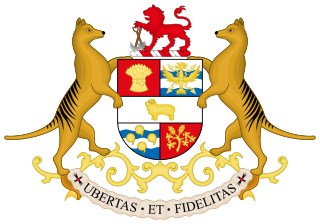
The House of Assembly, or Lower House, is one of the two chambers of the Parliament of Tasmania in Australia. The other is the Legislative Council or Upper House. It sits in Parliament House in the state capital, Hobart.
In the Parliament of Australia, a casual vacancy arises when a member of either the Senate or the House of Representatives:
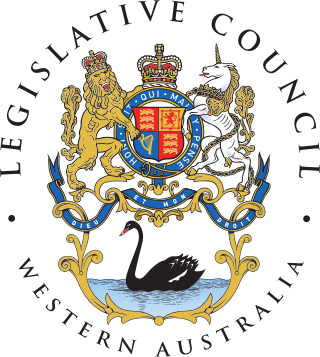
The Western Australian Legislative Council is the upper house of the Parliament of Western Australia, a state of Australia. It is regarded as a house of review for legislation passed by the Legislative Assembly, the lower house. The two Houses of Parliament sit in Parliament House in the state capital, Perth.

The Australian Capital Territory (Self-Government) Act 1988 is an Act of the Parliament of Australia enacted on 6 December 1988, that establishes "a body politic under the Crown by the name of the Australian Capital Territory" and is the constitutional foundation of the Territory's government.
Government in Australia is elected by universal suffrage and Australian women participate in all levels of the government of the nation. In 1902, the newly formed Commonwealth of Australia became the first nation on earth to enact equal suffrage, enabling women to both vote and stand for election alongside men Women have been represented in Australian state parliaments since 1921, and in the Federal Parliament since 1943. The first female leader of an Australian State or Territory was elected in 1989, and the first female Prime Minister took office in 2010. In 2019 for the first time, a majority of members of the Australian Senate were women. At the time of its foundation in 1901, and again from 1952 to 2022, Australia has had a female monarch as ceremonial Head of State, while the first female Governor of an Australian State was appointed in 1991, and the first female Governor-General of Australia took office in 2008.

The 1989 Australian Capital Territory general election was held on 4 March 1989 to elect the 1st Australian Capital Territory Legislative Assembly. This was the first direct election by voters in the Australian Capital Territory (ACT) for their power legislative body.
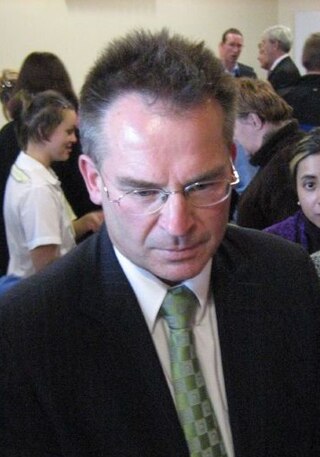
Elections to the Australian Capital Territory Legislative Assembly were held on Saturday, 16 October 2004. The incumbent Labor Party, led by Jon Stanhope, was challenged by the Liberal Party, led by Brendan Smyth. Candidates were elected to fill three multi-member electorates using a single transferable vote method, known as the Hare-Clark system. The result was a clear majority of nine seats in the 17-member unicameral Assembly for Labor. It marked the first and so far only time in the history of ACT self-government that one party was able to win a majority in its own right. Stanhope was elected Chief Minister at the first sitting of the sixth Assembly on 4 November 2004. The election was conducted by the ACT Electoral Commission and was the second time in Australia's history that an electronic voting and counting system was used for some, but not all, polling places, expanding on the initial trial of the system at the 2001 ACT election.
The Australian Capital Territory House of Assembly was the main elected representative body of the Australian Capital Territory between 1975 and 1986, during which time preparation began for the granting of self-government to the Territory. The Assembly had a largely advisory role, with most of the power over the Territory being in the hands of the relevant federal minister.

Elections to the Australian Capital Territory Legislative Assembly occurred on Saturday, 20 October 2012. The 11-year incumbent Labor Party, led by Chief Minister Katy Gallagher, won a fourth term over the main opposition Liberal Party, led by opposition leader Zed Seselja.
Beverley Mary Evelyn Cains is a former Australian politician.
The ACT Labor Party, officially known as the Australian Labor Party (Australian Capital Territory Branch) and commonly referred to simply as ACT Labor, is the ACT branch of the Australian Labor Party (ALP). The branch is the current ruling party in the Capital Territory and is led by Andrew Barr, who has concurrently served as chief minister of the Australian Capital Territory since 2014. It is one of two major parties in the unicameral Australian Capital Territory Legislative Assembly, and is currently in a coalition with the ACT Greens.

The 1974 Australian Capital Territory general election was held on 28 September 1974 to elect all 18 members of the Legislative Assembly, the main elected representative body of the Australian Capital Territory (ACT). This was the first election for the Assembly, replacing the Advisory Council, although elected members did not start sitting until 1975.
